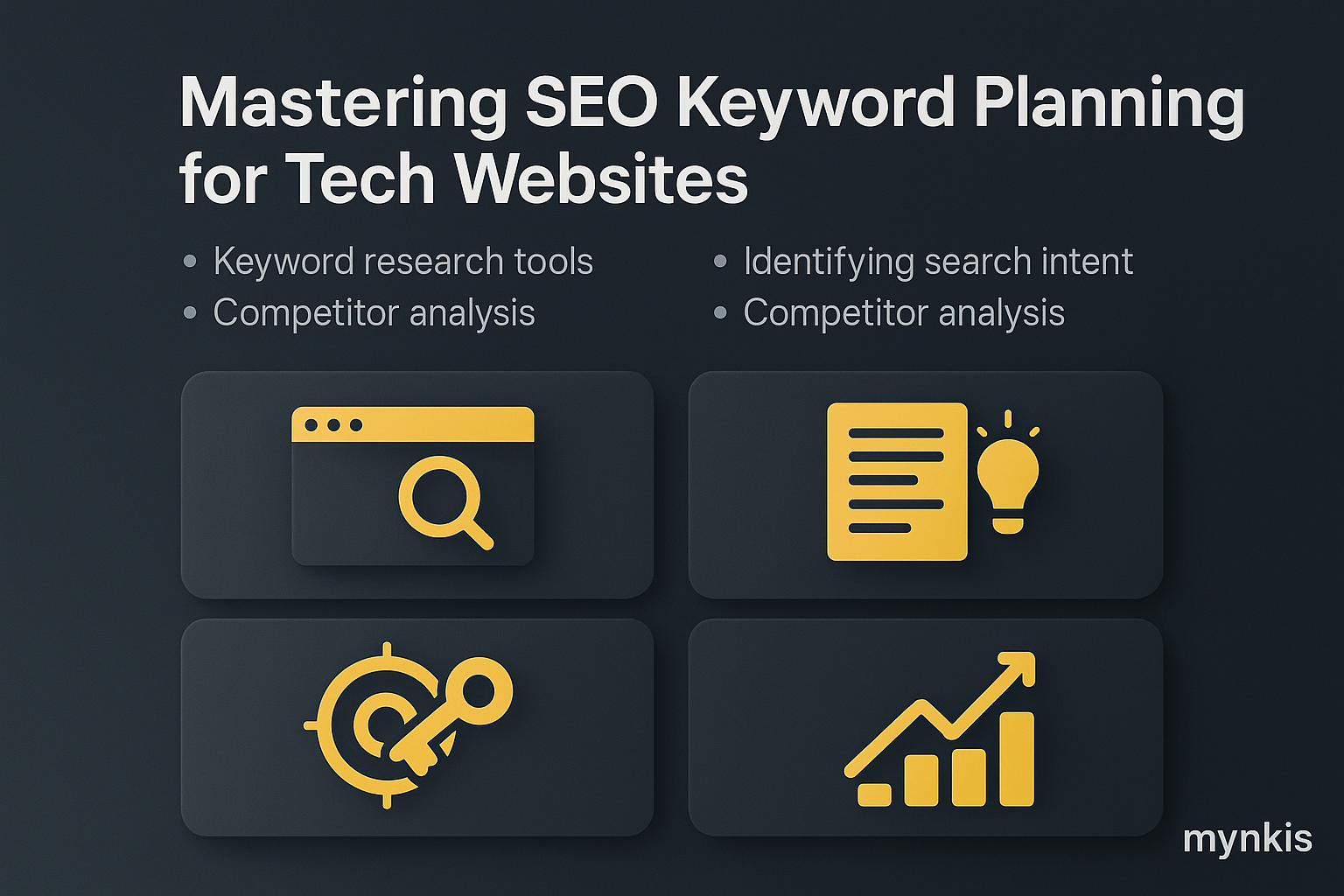Schedule a Demo
Keyword planning isn't just a box to check—it's the lifeblood of any tech company's digital presence. By delving deep into what potential clients are searching for, we can ensure our website not only pops up when it matters most but also resonates with the right audience. I've worked with many operation managers who have transformed their businesses by laser-focusing their online content, leveraging tools like Google's Keyword Planner, SEMrush, or Ahrefs to gain a competitive edge.
At its core, keyword research involves identifying terms and phrases that reflect the needs, concerns, and desires of your audience. I always emphasize starting with a solid foundation of understanding your market. Use your own industry expertise to generate a list of seed keywords. From there, expand this list with tools to identify related terms. It's not just about volume though; relevance and intent behind the keywords are crucial. Integrate high-volume terms judiciously while focusing on those indicating a clear readiness to engage with your services.
The importance of striking the right balance between short and long-tail keywords cannot be overstated. Short-tail keywords, like 'software development', bring in a lot of traffic but face intense competition. Conversely, long-tail keywords, such as 'best custom software development for enterprises', tap into more specific searches and are usually easier to rank for. I've seen firsthand how using long-tail keywords effectively increases the precision of your targeting, leading to higher conversion rates.
Never underestimate the insights you can glean from your competitors. By analyzing their keyword strategies, you can uncover gaps and opportunities they might have missed. Tools like Moz and Ahrefs can reveal not just what keywords they are targeting, but also their effectiveness. This level of strategic espionage empowers your website to stay one step ahead.
Moving beyond surface-level terms, intent-driven keywords align your content with the exact queries your potential clients are making. A customer searching for 'how to choose software development company' is in a research phase. Crafting content that addresses such detailed queries provides immense value and establishes your authority. Capture this intent by thinking like your prospects; what questions do they have as they navigate their journey towards your services?
Keywords shouldn't just live in your blog posts or homepage—integrate them thoughtfully throughout your site. This means weaving them into your landing pages, product descriptions, and even your contact forms. Every page should play its part in reinforcing your keyword strategy and drawing in the perfect visitors.
With more than half of web traffic originating from mobile devices, your keyword strategy must account for mobile searches. Research from Think with Google suggests that mobile search behavior is different; users tend to make quicker, more action-oriented searches. Tailoring your keywords and the accompanying content for these behaviors isn't just a good practice—it's essential.
The tech landscape shifts rapidly, and staying on top of seasonal and trending keywords can boost your site's relevance. Monitoring trends through tools like Google Trends or Bing Webmaster Tools can uncover timely opportunities. Perhaps there's a spike in interest around 'AI development services' during tech conferences or 'cybersecurity solutions' as new regulations roll out—leverage these trends wisely.
Developing content that's built around your chosen keywords takes creativity and discipline. Your mission is to provide content that not only includes the keywords strategically but also speaks directly to the client's needs and curiosities. I recall crafting a series of blog posts for a client that deeply explored 'custom software development benefits', turning dry information into engaging, SEO-rich content that propelled their site to the top of search results.
SEO is not a set-it-and-forget-it strategy. Constant measurement and refinement are critical. Use analytics platforms like Google Analytics to track how well your keywords perform in drawing traffic and leading to conversions. Beware of diminishing returns on certain keywords, and be ready to pivot when necessary. Continuous improvement here ensures your site remains on top of search engine rankings.
If you serve specific geographic areas, optimizing for local SEO using location-specific keywords can dramatically increase your visibility. Incorporating phrases like 'Silicon Valley software company' or 'Los Angeles software development services' reaches clients right in their backyard. Ensuring you're listing on Google My Business and other local directories with your chosen keywords further fortifies your local presence.
Voice search represents the next frontier of keyword planning, demanding a new approach to how we select and deploy our keywords. Phrases tend to be longer and conversational—think 'what's the best software development firm near me?' Optimize your site accordingly by incorporating natural language queries, which not only improves voice search compatibility but also caters to the growing number of users who interact with search engines via voice commands.
Keywords drive traffic, but user experience keeps visitors engaged. When you select keywords, think about how they relate to the quality and relevance of your site's content. A tech company's site should offer seamless navigation and rich, interactive features—elements that keywords can signal to users right from the search engine results page. Always anchor your SEO efforts in delivering a top-notch user experience.
With advancements in AI and machine learning, the capabilities for personalized keyword planning have skyrocketed. Tools powered by these technologies can analyze user behavior patterns on a massive scale, offering unparalleled insights into how your targeted audience searches and interacts with content. Employing such technology isn't just a plus—it's becoming a cornerstone of staying ahead in the digital marketing game.
